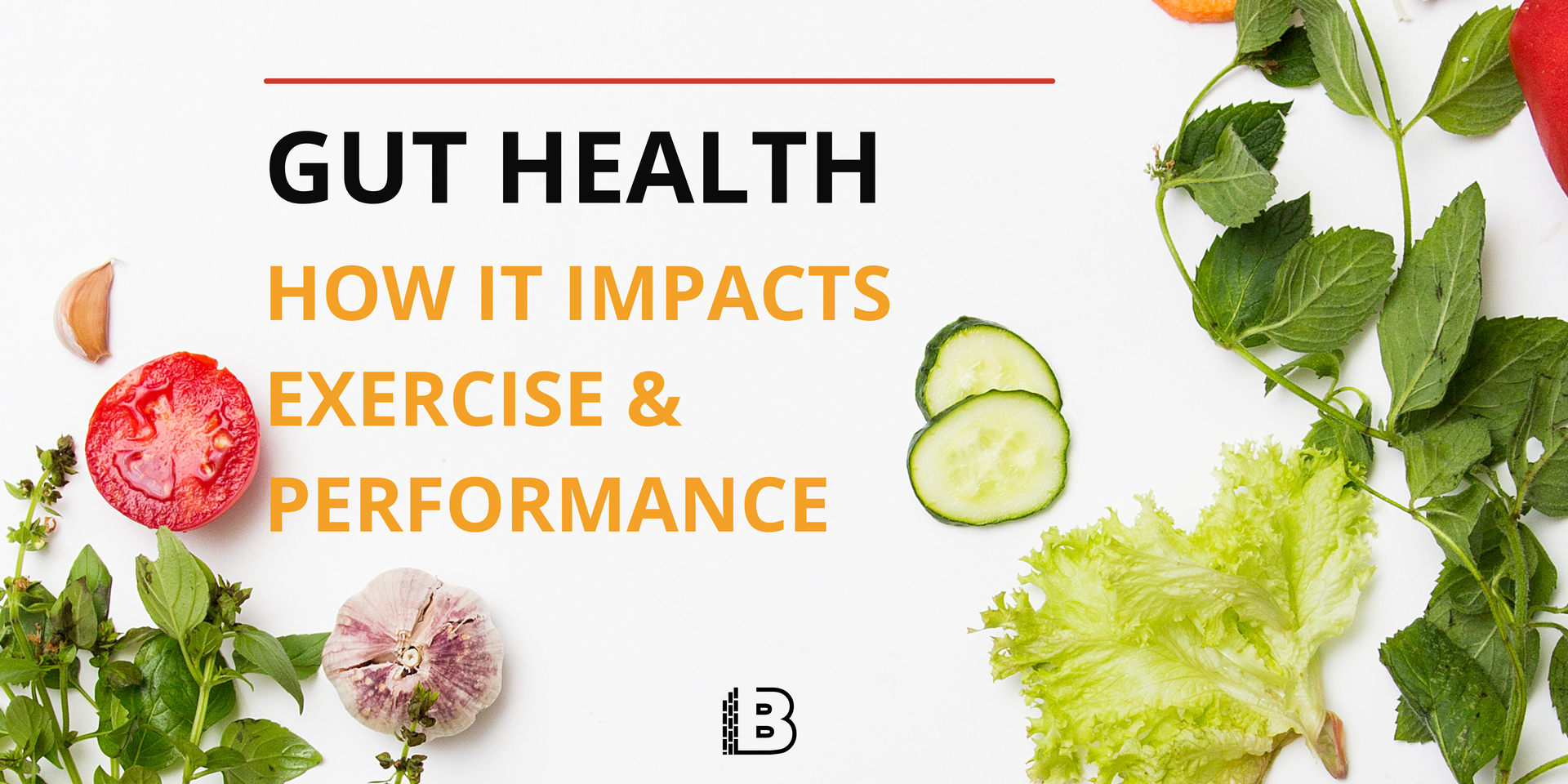GUT HEALTH
& How it Impacts Exercise Performance

The intricate relationship between gut health and exercise performance has garnered significant attention in health and wellness.
While maintaining a balanced gut for overall well-being is not new, recent research has illuminated the profound impact of gut health on athletic prowess and exercise outcomes.
This blog post delves into the connection between gut health and exercise performance, exploring the scientific underpinnings, practical implications, and steps to optimize both for a healthier, more robust lifestyle.

The Gut Microbiota: A Thriving Ecosystem Within
The gut microbiota, a diverse community of trillions of microorganisms residing in the gastrointestinal tract, plays a pivotal role in digestion, nutrient absorption, and immune system regulation. This ecosystem comprises bacteria, viruses, fungi, and other microorganisms that coexist harmoniously to maintain gut health.
Emerging research has highlighted that the gut microbiota impacts digestive health and extends its influence to various physiological processes throughout the body, including exercise performance. The composition and diversity of these microorganisms are closely tied to factors like diet, lifestyle, genetics, and environmental exposures.
Gut Health's Impact on Exercise Performance
- Nutrient Absorption: A well-balanced gut microbiota contributes to efficient nutrient absorption, ensuring that essential vitamins, minerals, and energy substrates are effectively assimilated into the body. This directly impacts an athlete's ability to recover, adapt, and perform optimally during training and competitions.
- Inflammation and Immunity: The gut microbiota plays a crucial role in modulating inflammation and immune responses. A healthy gut microbiome can help regulate inflammation, reducing the risk of chronic inflammation that might impede exercise recovery and performance.
- Energy Metabolism: Certain gut microbes ferment dietary fibers and produce short-chain fatty acids (SCFAs). These SCFAs have been linked to improved energy metabolism and enhanced endurance performance in athletes.
- Neurological Connection: The gut-brain axis, a bidirectional communication pathway between the gut and the brain, influences mood, cognitive function, and even motivation to exercise. A balanced gut microbiome can positively affect neurotransmitter production, potentially enhancing an athlete's mental resilience and focus during training.
- Mitochondrial Function: Recent studies have suggested a connection between gut health and mitochondrial function, the energy-producing powerhouses of our cells. Healthy gut bacteria may contribute to optimal mitochondrial function, improving an athlete's aerobic capacity and overall endurance.
Optimizing Gut Health for Enhanced Exercise Performance
- Diverse Diet: Consuming a wide variety of whole foods rich in fiber, prebiotics, and fermented foods can promote gut microbial diversity. Incorporate foods like vegetables, fruits, whole grains, legumes, yogurt, kefir, sauerkraut, and kimchi.
- Probiotics and Prebiotics: Probiotics are live beneficial bacteria that can be consumed through supplements or certain foods. Prebiotics are non-digestible fibers that nourish these beneficial microbes. Consider incorporating probiotic-rich foods and prebiotic sources like garlic, onions, and bananas.
- Hydration: Staying adequately hydrated supports digestion and nutrient absorption. Water is crucial for maintaining a healthy gut environment.
- Balanced Training and Recovery: Intense exercise can impact gut health. Ensure adequate recovery, manage stress, and incorporate low-intensity exercises like yoga, which may support gut health.
- Personalized Approach: Each individual's gut microbiota is unique. Factors such as genetics, diet, and lifestyle influence its composition. Consulting a healthcare professional can provide personalized recommendations.

The connection between gut health and exercise performance underscores the importance of a holistic approach to wellness.
By nurturing a diverse and balanced gut microbiota through dietary choices, hydration, and lifestyle practices, athletes and fitness enthusiasts can unlock untapped energy, endurance, and overall performance reserves.
Understanding this intricate interplay between the gut and exercise can pave the way for a future where optimal health and athletic achievement go hand in hand.
